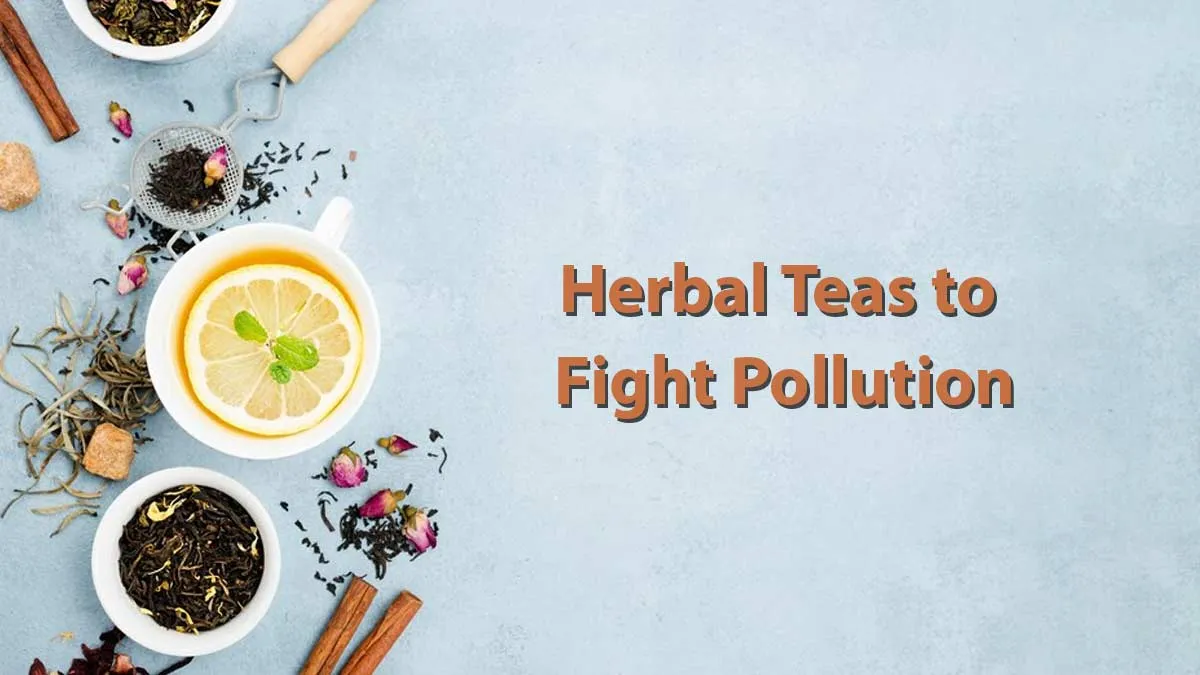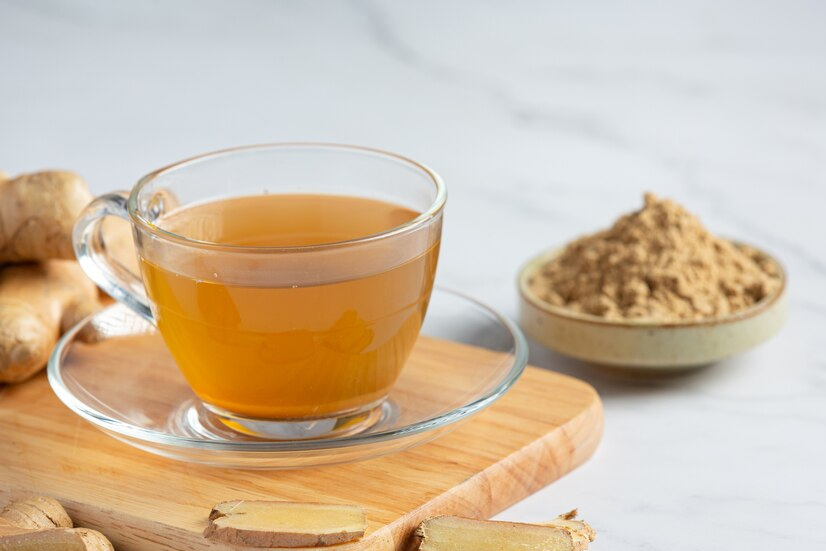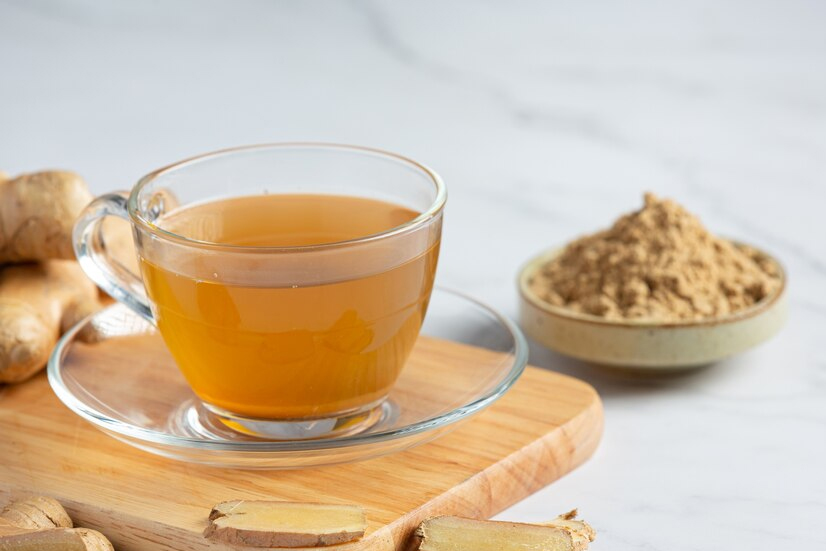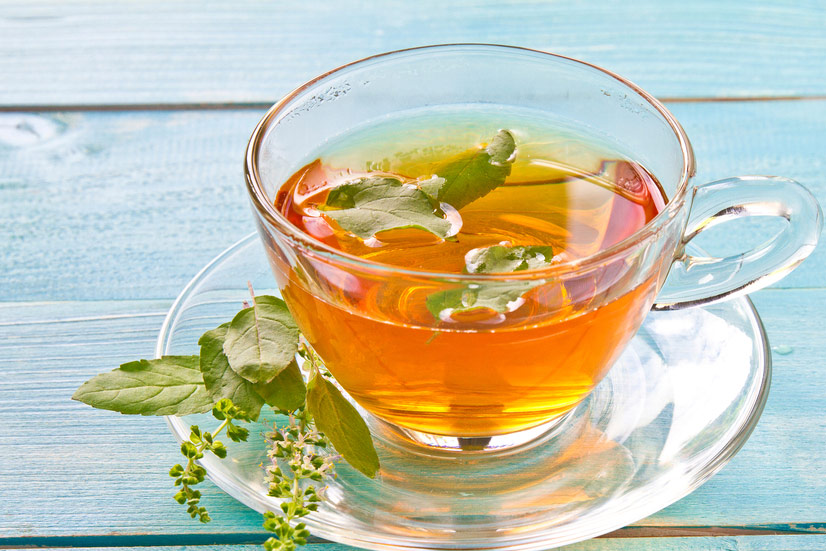
Have you ever felt out of breath after a day in the city or noticed your lungs feel heavy from the air around you? It’s no surprise as air pollution is everywhere, and it can take a toll on our respiratory health. While we can't always escape it, there’s a simple way to help protect our lungs: herbal teas. From soothing inflammation to boosting lung function, the right teas can help our bodies fight back against the damage caused by polluted air.
Table of Content:-
Herbal Teas To Boost Lung Health and Fight Pollution
1. Green Tea

Green tea has always been praised for its many health benefits. Packed with antioxidants, especially catechins like EGCG, it helps fight inflammation and protect your cells from damage. Drinking green tea regularly can reduce the harm caused by free radicals in the air, which can lead to lung inflammation. Drinking 7.5 grams of green tea a day can significantly lower the risk of lung cancer, according to both case-control and cohort studies. It also supports lung health by boosting the immune system, making it easier for your body to fight off infections that pollution can make worse.
2. Peppermint Tea
Peppermint tea is a popular beverage known for its refreshing taste and soothing properties. According to a 2006 study, the key active ingredients in peppermint essential oil are menthol and menthone. Peppermint has strong antimicrobial, antiviral, antioxidant, and antitumor properties, along with some potential to help with allergies. The menthol in peppermint is a natural decongestant, helping to open up the airways and make breathing easier. This is especially beneficial for those living in areas with high levels of air pollution, where the respiratory system may already be under strain.
Also Read: Explained: How Air Pollution Affects Fertility In Young People
3. Ginger Tea

Ginger is a powerful herb known for its ability to reduce inflammation and detoxify the body. According to a 2018 study, ginger effectively reduced lung damage and helped protect the lungs from severe harm caused by high oxygen levels and inflammation.
Drinking ginger tea regularly can help clear mucus from the lungs, making it easier to breathe and lowering the risk of respiratory infections linked to pollution. It also supports the immune system, helping the body fight off harmful toxins in the air.
4. Turmeric Tea
Turmeric is well-known for its strong anti-inflammatory benefits. Its key compound, curcumin, helps reduce inflammation and damage in the lungs caused by pollution. Turmeric tea, often made with a pinch of black pepper to boost curcumin absorption, is a great option for supporting lung health. Drinking it regularly can improve lung function, protect against infections, and lower the risk of conditions like asthma or Chronic Obstructive Pulmonary Disease (COPD), which can worsen due to air pollution.
Also Read: What Are The Long-Term Health Impacts Of Exposure To Ultrafine Pollutants In Atmosphere
5. Holy Basil (Tulsi) Tea

Holy basil, or tulsi, is highly valued in Ayurvedic medicine for its health-boosting properties. This herb is particularly beneficial for lung health, as it is known for its detoxifying and anti-inflammatory properties. Tulsi tea helps cleanse the respiratory system and reduce toxins in the lungs, which is especially important in polluted areas. A 2014 study found that tulsi helps protect organs and tissues from chemical stress caused by industrial pollutants and heavy metals, as well as from physical stress resulting from prolonged exertion, poor blood circulation, confinement, and exposure to cold or loud noises.
6. Liquorice Root Tea
Liquorice root has long been used in traditional medicine to treat breathing problems, making it especially helpful for those living in polluted areas. This herbal tea helps clear mucus from the lungs, easing congestion and making it easier to breathe. It also soothes an irritated throat and reduces coughing. Plus, liquorice root strengthens the respiratory system, helping the lungs better withstand the harmful effects of pollution.
7. Eucalyptus Tea
Eucalyptus is well-known for its ability to relieve symptoms of congestion and respiratory issues. The oil extracted from eucalyptus leaves contains compounds that act as natural decongestants, helping to clear mucus from the airways and reduce inflammation. Drinking eucalyptus tea can help open up the air passages, making it easier to breathe, especially if you’re exposed to pollution. It also has antimicrobial properties, which can help protect the respiratory system from infections caused by airborne pollutants.
[Disclaimer: This article contains information provided by an expert and is for informational purposes only. Hence, we advise you to consult your own professional if you are dealing with any health issues to avoid complications.]
Also watch this video
How we keep this article up to date:
We work with experts and keep a close eye on the latest in health and wellness. Whenever there is a new research or helpful information, we update our articles with accurate and useful advice.
Current Version